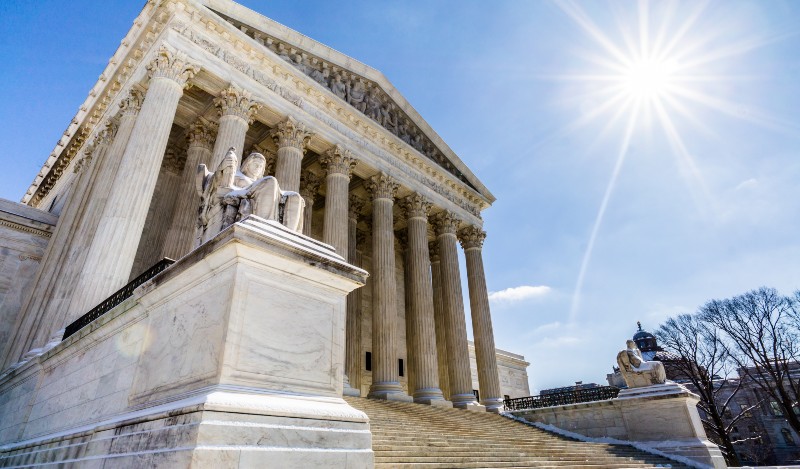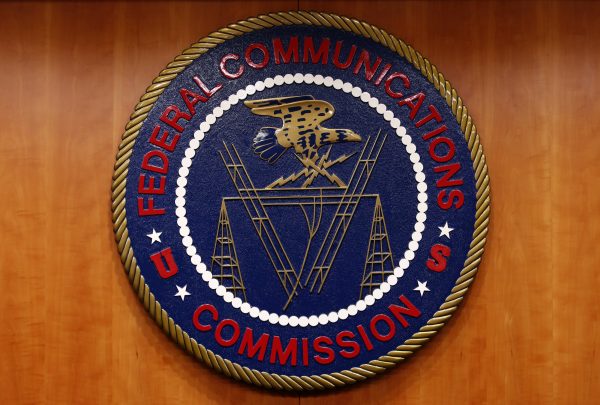
April 10, 2025
Satellite Broadband Competition—New Hope, but for Which Markets?
Last week, Amazon subsidiary Project Kuiper announced plans to launch the first 27 satellites in its 3,000-plus planned low earth orbit (LEO) constellation from Cape Canaveral Space Force Station in Florida on April 9. The launch brings long-promised competition in the satellite broadband space for Elon Musk’s 5,000-plus-satellite Starlink system, which, up to now, has…

April 9, 2025
California Finally Abandons Facets of Flawed Social-Media Mandate
Department of Government Efficiency, but the world’s richest person recently scored an important––albeit largely overlooked––First Amendment victory for social media platforms against intrusive, peek-under-the-hood government regulations. In late February, a final judgment and permanent injunction barring enforcement of key parts of California Assembly Bill 587 (AB 587) was agreed to by the parties in X…

April 8, 2025
My Response to the House Commerce Committee Privacy Working Group
In February 2025, the House Committee on Energy and Commerce announced the creation of a privacy working group to address many of the now-familiar challenges created by our advanced digital economy. Shortly thereafter, the Committee released a Request for Information, inviting expert recommendations for the newly-formed group. I have given some thought to some of…

April 7, 2025
The Spectrum Exchange: Networks, Security, and Innovation
Spectrum management is crucial to our digital future as it provides the invisible regulatory framework enabling efficient and equitable allocation of finite radio frequency resources. Without comprehensive, forward-thinking spectrum policies, our rapidly evolving technological landscape will face stifled innovation and restricted growth. Ensuring responsible spectrum issues involves balancing regulatory frameworks that encourage innovation while ensuring…

April 2, 2025
Free Speech Tradeoffs and Roleplaying Chatbots: Sacrificing the Rights of Many to Safeguard a Few?
First Amendment law entails tradeoffs. Consider Free Speech Coalition v. Paxton, a case the US Supreme Court heard in January. It involves an online age-verification statute that ostensibly is designed to prevent minors from accessing sexually explicit content that Texas deems harmful to them but that is not obscene (and thus is constitutionally protected) when…

April 1, 2025
The Supreme Court Seems Unlikely to Revive Nondelegation Doctrine in FCC Case
Earlier this month, I previewed the arguments in Federal Communications Commission v Consumers’ Research. The case asks the Supreme Court whether the FCC’s Universal Service Fund (USF) violates the nondelegation doctrine, which prohibits Congress from delegating the legislative power to executive branch agencies. As my previous post explains, nondelegation is a largely toothless doctrine, mostly…

April 1, 2025
Another Courtroom Loss for AI Creations, as “Automatoners” Prevail Again
Last month, a federal appeals court confirmed what most legal regimes around the world—patent offices, administrative judges, and even supreme courts—have long held: Machines cannot themselves create. Readers of this space are by now hopefully well acquainted with the fierce divisions between autonomists—those who contend that artificial intelligence (AI) is now or will soon become…

March 26, 2025
Return of the Landline: A Regressive or Welcome Scenario?
If there has been one inexorable trend in the telecommunications industry over the past 30 years, it has been the decline of the household landline phone connection. While Figure 1 illustrates the case for the United States, the phenomenon is worldwide. The humble landline, with its single function and tethered to a single fixed location has given…

March 25, 2025
The Press Clause’s Disputed Meaning and Its Implications for Trump-Era Journalism
A burgeoning battle among academics and attorneys involving a centuries-old communications technology––the printing press––could impact journalists’ current claims to constitutional protection against President Trump’s ceaseless attacks on news organizations. Indeed, the dispute might profoundly affect lawsuits such as Associated Press v. Budowich in which a wire service is fighting to restore its press-credentialed access to…

March 20, 2025
DOGE, Open Up the MAX Database!
My most recent post “Haste Controls Waste!” sought to reconcile my misgivings about the speed of current government reforms with decades of staunch and thoroughgoing resistance. Now let’s talk about DOGE-y reforms that could be applied to democratic processes. When Elon Musk spoke about democracy in the Oval Office some weeks ago, many people focused…